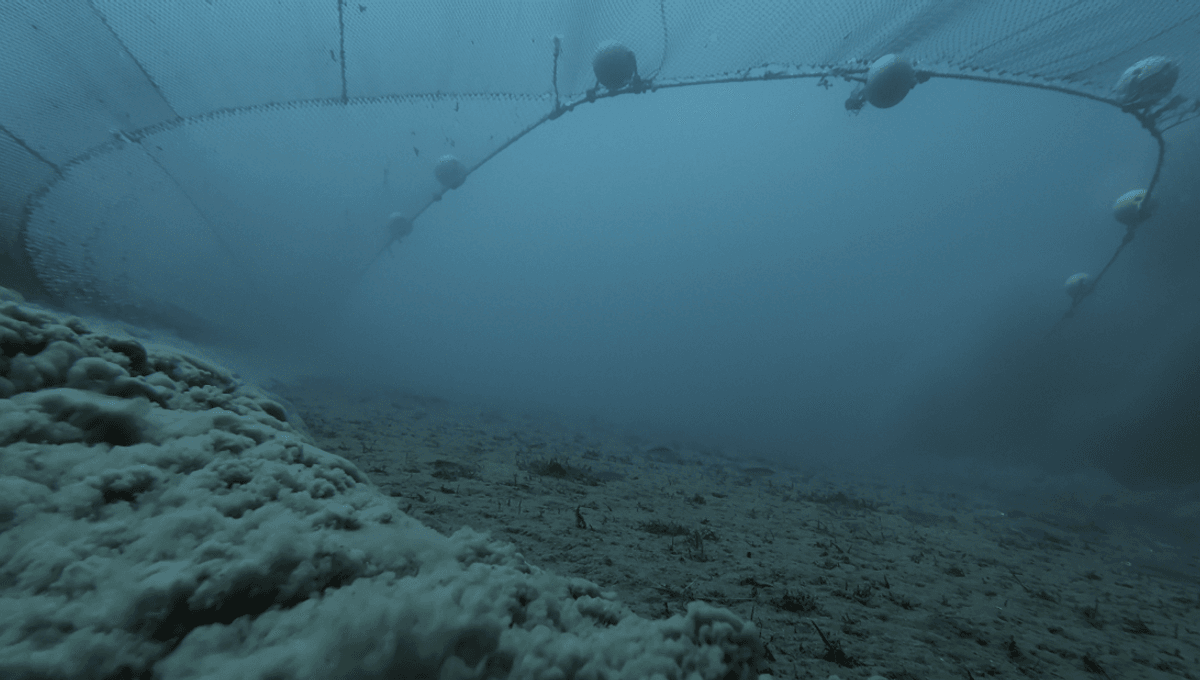-
Noticias Feed
- EXPLORE
-
Páginas
-
Blogs
-
Foros
Devastating Impact Of Trawling Revealed In World-First Footage Of Marine Animals Fleeing Nets

“This Hit Me In The Guts”: World-First Footage Shows Fish Swimming For Their Lives As Trawlers Close In
Sir David Attenborough’s latest film OCEAN includes a documentary film world-first: chilling footage from the point-of-view of a bottom trawler scraping the seabed. Fish, cephalopods, and rays can all be seen fleeing the wall of destruction headed their way as metal and rope wipe out ecosystems that take years to recover. It makes for difficult viewing, even for the experts who have dedicated their lives to marine research.
“I've been working on marine conservation science for over 35 years, and we did the research that showed that bottom trawling, by churning the sediment on the sea floor, produces carbon dioxide emissions that are on the scale of global aviation every year,” marine ecologist Enric Sala, Executive Producer and Scientific Advisor on OCEAN, and National Geographic Explorer, told IFLScience. “I have seen the bycatch on the deck of trawlers, but like everybody else, I had never seen what the trawl does underwater.” This hit me in the guts. Being at the level of the net and seeing all these poor creatures trying to escape the net. Enric Sala “We had all this info, all this data that hits the brain, but this hit me in the guts. Being at the level of the net and seeing all these poor creatures trying to escape the net, that's something that nobody else had seen. What the film does so powerfully is that now people can see for themselves, right? It's not about believing one side or another. People can see by themselves, and they can make up their minds about this practice.” A 2017 study published in Proceedings of the National Academy of Sciences found that trawling the ocean floor can strip it of up to 41 percent of the seabed fauna, a loss in biodiversity that can take over six years to recover. Around a quarter of all wild-caught seafood is caught using trawlers each year, giving you an idea of the scale of this destruction, but it goes further still. In fact, the damage we are doing to the seas is even visible from space. You see, each time a trawler descends its net and charges across the seabed, it stirs up billowing plumes of sediment, creating trails of devastation that have been photographed in satellite imagery. Some sediment trails span tens of kilometers, and each marks the destruction of an ecosystem that can take years to recover. This is as destructive as bulldozing your local ancient woodland, or the Amazon rainforest. Toby Nowlan It’s a devastating practice, and one that’s been around for a long time. “We're talking about something that was invented off the south coast of the UK 700 years ago,” said Toby Nowlan to IFLScience, who was director and producer on OCEAN. “Back then, it was done with little sailboats, but we knew it was a bad thing. There were letters of complaint to the king because of the bycatch that was brought up on deck.” "Seven hundred years go by, still nothing changes. We still know it's a bad thing, and it's happening now as commonplace as agricultural practices on land, like ploughing. It's happening everywhere around the ocean, including in many of our protected areas. The difference being that this is as destructive as bulldozing your local ancient woodland, or the Amazon rainforest.” An aerial view of the impacts of bottom trawling on the ocean floor. Image credit: Silverback Films and Open Planet Studios “If my local ancient woodland, Leigh Woods, was just bulldozed, the entire city would be up in arms, but this is what's happening underwater. The whole reason [people aren’t up in arms about trawling] is that it's remained hidden from view. It's happened just below the surface. Outside, out of mind, so it's remained concealed.” It could end tomorrow, if we choose it to, and it would be to the benefit of every living thing on the planet. Toby Nowlan “That’s why this was such a big mission to bring this clearly on screen for the first time, because this is something that doesn't have to happen in our marine protected areas. It could end tomorrow, if we choose it to, and it would be to the benefit of every living thing on the planet.” Described as the "greatest message" Attenborough's ever told, OCEAN arrives ahead of the 2025 UN Ocean Conference, which could determine the future of our planet in deciding if we will protect 30 percent of the ocean by 2030 to stem the dual crises of biodiversity loss and climate change. As he said, "After almost 100 years on the planet, I now understand the most important place on Earth is not on land, but at sea." Could now finally be the time for that change we've waited 700 years for? Ocean with David Attenborough airs Sunday 8 June at 8 pm on National Geographic and streams the same day on Disney+, and is available in select cinemas now. See the petition to end bottom trawling in Marine Protected Areas.


